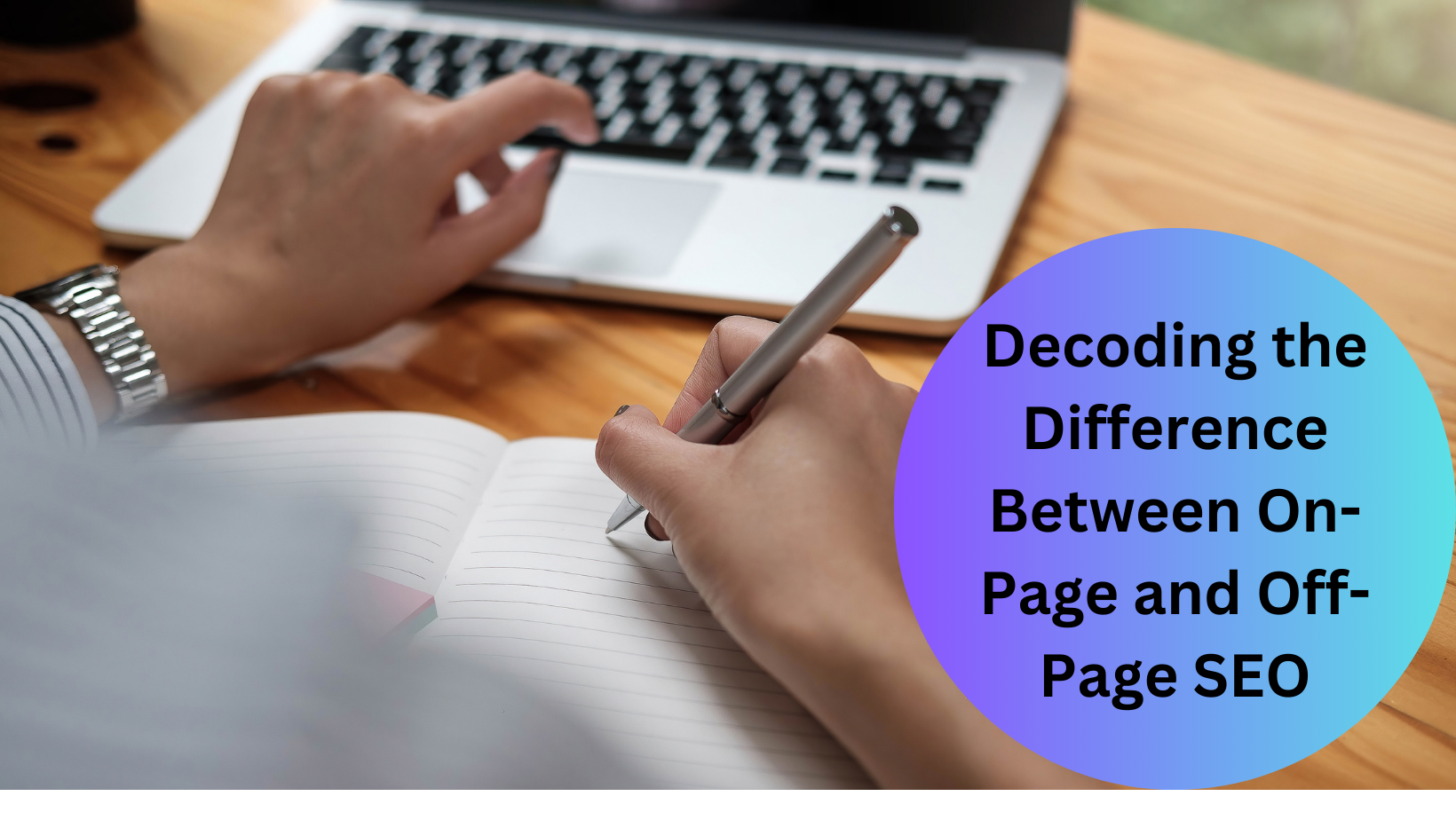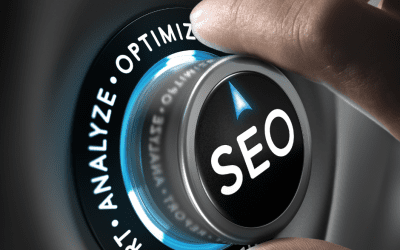SEO plays an integral role in determining the success of a website. But amidst the ever-increasing complexity, two key terms often leave marketers scratching their heads: on-page SEO and off-page SEO.
SEO, which stands for Search Engine Optimization, is the art and science of optimizing your website to rank higher in search engine results pages (SERPs). It’s the secret sauce that helps search engines like Google understand and recognize your website as an authoritative source in its niche. But within the realm of SEO, there are two distinct strategies at work: on-page SEO and off-page SEO. On-page SEO refers to all the elements you can control on your website to improve its search engine rankings. This includes optimizing your meta tags, headings, content, and URL structure, among other things.
Essentially, on-page SEO involves making your website as search engine-friendly as possible, ensuring that it’s easy for both users and search engines to navigate and understand. On the other hand, off-page SEO is all about building a website’s authority and reputation beyond its own domain. While on-page SEO focuses on optimizing the website itself, off-page SEO involves external factors such as backlinks, social media signals, and online mentions. It’s about creating a buzz around your website and establishing credibility and trust in the eyes of search engines.
In this blog post, we will delve deep into the world of on-page and off-page SEO, uncovering their nuances, similarities, and most importantly, the ways in which they can work harmoniously together to boost your search engine rankings. Get ready to crack the code and take your SEO game to a whole new level.
The Basics of On-Page SEO
When it comes to on-page SEO, it’s all about optimizing the elements within your website to improve its visibility in search engine rankings. One of the key aspects of on-page SEO is optimizing your meta tags. Meta tags are snippets of code that provide information about your webpage to search engines. By including relevant keywords in your meta tags, you can signal to search engines what your webpage is about and increase its chances of ranking higher in search results.
In addition to meta tags, another important element of on-page SEO is optimizing your headings. Headings help structure your content and make it easier for both users and search engines to understand. By using relevant keywords in your headings, you can further enhance the visibility of your webpage in search results.
Content optimization is also a crucial part of on-page SEO. This involves creating high-quality, informative, and engaging content that is optimized for specific keywords. By incorporating relevant keywords naturally throughout your content, you can improve its relevance and increase its chances of ranking higher in search results.
URL structure is another factor that plays a role in on-page SEO. Having clean and descriptive URLs that include relevant keywords can make it easier for both users and search engines to understand what a webpage is about.
Lastly, website navigation and user experience are important considerations for on-page SEO. Ensuring that your website is easy to navigate and user-friendly not only improves the overall user experience but also makes it easier for search engines to crawl and index your webpages.
Understanding Off-Page SEO
While on-page SEO focuses on optimizing elements within a website, off-page SEO takes into account external factors that contribute to a website’s authority and reputation. One of the most significant factors in off-page SEO is backlinks.
Backlinks are links from other websites that point to your website. They act as votes of confidence, indicating to search engines that your website is trustworthy and authoritative. The more high-quality backlinks you have, the higher your website is likely to rank in search results.
Social media signals also play a role in off-page SEO. When your content is shared and engaged with on social media platforms, it can increase the visibility and reach of your website. This can lead to more traffic and potentially more backlinks.
Online mentions or citations are another important aspect of off-page SEO. When other websites mention or cite your website as a source of information, it can help establish credibility and authority in the eyes of search engines.
The Importance of Backlinks in Off-Page SEO
Backlinks are often considered one of the most crucial factors in off-page SEO. Search engines view backlinks as endorsements from other websites, indicating that your content is valuable and trustworthy.
However, not all backlinks are created equal. Quality matters more than quantity when it comes to backlinks. A few high-quality backlinks from authoritative websites can have a greater impact on your search engine rankings than numerous low-quality backlinks.
Building high-quality backlinks requires a strategic approach. One way to acquire backlinks is through guest blogging or contributing articles to other reputable websites in your industry. By providing valuable content, you can earn a link back to your own website.
Another effective strategy for building backlinks is reaching out to influencers or industry experts and asking them to share or link to your content. This can help increase the visibility and reach of your website while also establishing relationships within your industry.
Best Practices for On-Page Optimization
To optimize your on-page SEO effectively, it’s important to follow best practices. Here are some key tips:
1. Conduct keyword research: Identify relevant keywords that your target audience is searching for and incorporate them naturally into your meta tags, headings, and content.
2. Create high-quality content: Focus on creating informative, engaging, and well-structured content that provides value to your audience.
3. Optimize your meta tags: Craft compelling meta titles and descriptions that accurately reflect the content of your webpages and include relevant keywords.
4. Use descriptive URLs: Create clean and user-friendly URLs that include relevant keywords.
5. Optimize your images: Use descriptive file names and alt tags for your images to make them more search engine-friendly.
6. Improve website speed: Ensure that your website loads quickly to provide a positive user experience and improve search engine rankings.
By implementing these best practices for on-page optimization, you can enhance the visibility of your website in search engine results pages (SERPs) and attract more organic traffic.
The AI Web Agency is dedicated to helping our clients grow their business. Growth is the DNA and foundation of our focus in everything we provide to our clients. The AI Web Agency offers marketing services that make our client’s phones ring, their websites fill with visitors, and keeps their existing clients engaged. We deliver this growth both online and offline, to local businesses and national brands. We leverage the power of AI to provide precision personalized content delivered via Email, Web, and Social Media to help businesses grow.









